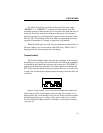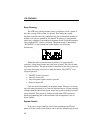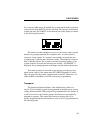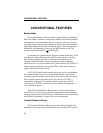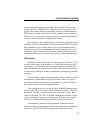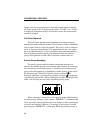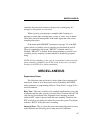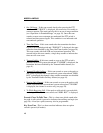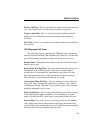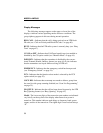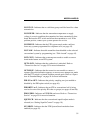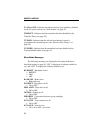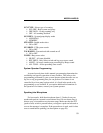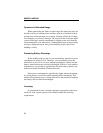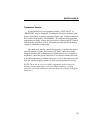
MISCELLANEOUS
51
NO DT GP - Indicates that no valid data group could be found for a data
transmission.
NO POWER - Indicates that the transmitter temperature or supply
voltage is excessive and that the transmitter has been automatically shut
down. Release the PTT switch and allow the transmitter to cool. If the
problem persists, contact your system operator for service.
NO PHONE - Indicates that the LTR system search mode could not
locate any systems programmed for telephone calls (see page 42).
NO TALK - Indicates that talk-around has been disabled on the selected
conventional system by programming (see “Talk-Around” on page 45).
NOT CONV - Indicates that an attempt was made to enable a conven-
tional mode feature on an LTR system.
OUT-LOCK - Indicates that the synthesizer is unlocked. Refer to
“Transceiver Service” on page 55 for more information.
OUT-RNGE - Indicates that the transceiver was unable to contact a
repeater. Once this indication appears, no more access attempts are made
until the PTT switch is released and then pressed again. Refer to “Opera-
tion At Extended Range” on page 54 for more information.
PRI ON or OFF - Indicates that priority sampling was just enabled or
disabled by the PRI option switch (see page 46).
PRIORTY1 or 2 - Indicates that an LTR or conventional call is being
received on one of the priority ID codes or groups (see pages 40 and 46).
PROG ERR - Indicates an EEPROM read error. Refer to “Transceiver
Service” on page 55 for more information.
SQUELCH - Indicates that the conventional squelch adjust mode is
selected (see “Setting Squelch Control” on page 18).
SYS SRCH - Indicates that the LTR System Search mode has been
enabled (see page 42).



